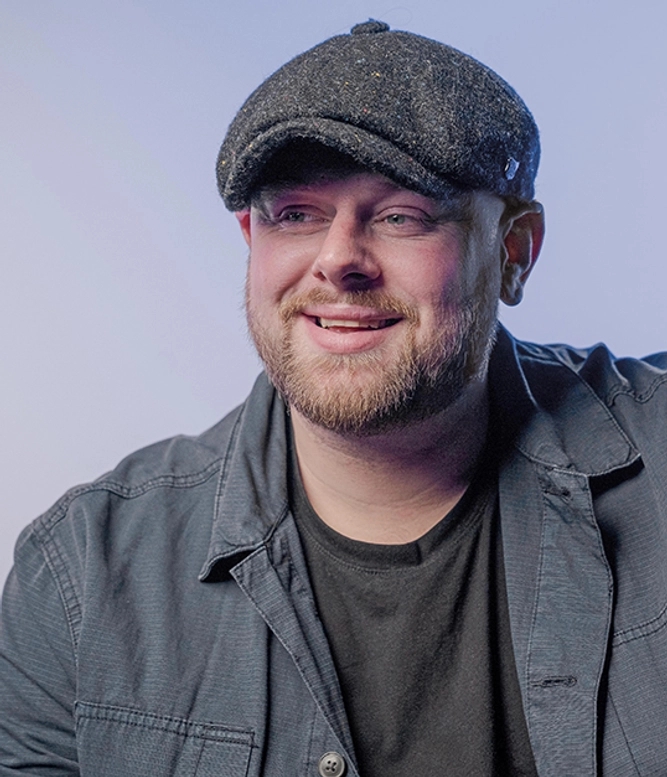opioid dependence
Cullan's story

Cullan was raised in a good family household in Cardiff, Wales. In his mid-teenage period, like many others, he tried out cannabis. What started as casual use quickly escalated – within two years, he was addicted to heroin.
Today, he supports others in recovery and runs a podcast to challenge stigma and show that life after addiction is possible.
Challenging stigma
As a child, Cullan struggled with anxiety, mood swings, and obsessive behaviors. “I went straight into heavy cannabis use, which masked my mental health issues,” he explains. “From being worried all the time, panicking, and going hundred miles an hour, to using weed which took that away, I got really obsessed.”, he tells. Things snowballed, he moved onto smoking heroin for the first time, and soon he was dependent on opioids.
Despite convincing himself he had things under control, the reality was different.
“I told myself I had a roof over my head, dressed smart, brushed my teeth, had a girlfriend. But then I woke up physically ill after four days of smoking heroin – I knew this was it.”
To fund his addiction, he became a professional shoplifter, traveling across Wales and England. “It only led one way – I was in and out of prison. That was the cycle for 12 years.”
In 2020, during the COVID-19 lockdown, Cullan faced a turning point. After losing a close friend and being hospitalized with sepsis and pneumonia, he entered treatment. “It’s not just about medication – you have to change too.”
Now drug-free for over five years, Cullan supports others navigating recovery.
“Coming off illicit opioids is emotional. Your feelings come back, your smell comes back. It is a sensitive time, and you want to be reassured you are going to be fine, both physically and mentally.”
Through his podcast The Central Club, he shares stories of resilience and recovery. His guests range from athletes and musicians to individuals with lived experience of addiction, and public figures. “Even if I interview someone about something totally different to drugs, it promotes back-tackling addiction.“
“I want to show that you can do more with your life after drugs. That is what I am really passionate about.”
Symptoms
In addition to cravings, withdrawals and drug seeking behavior, physical symptoms of opioid dependence may include changes in sleep habits, weight loss and decreased libido.
Diagnosis
An opioid dependence diagnosis may be made by a doctor following a formal assessment based on the patient’s history and pattern of opioid use, such as use of heroin, other illicit opioids or prescription opioids.
Management
Treatment and management of opioid dependence need to be individualized and may consist of a combination of different pharmacological and psychological interventions.
Explore more
Learn more about opioid dependence.